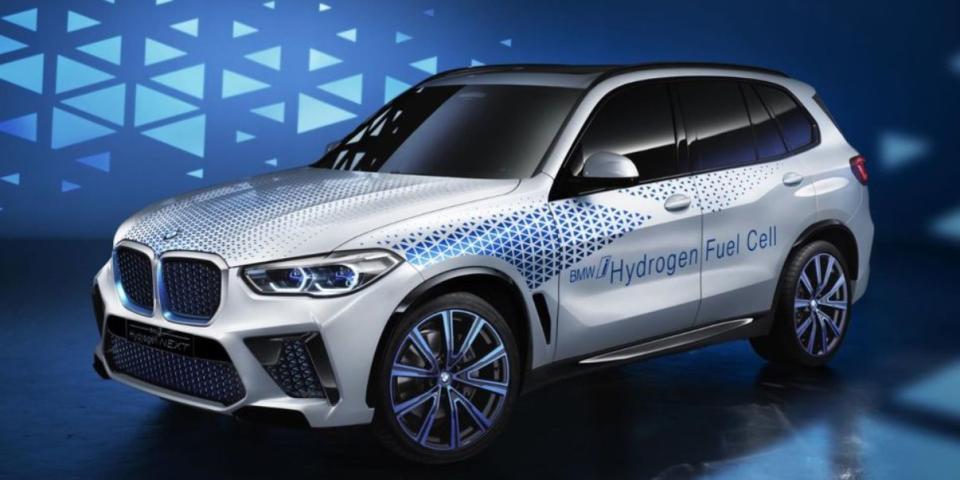BMW Will Offer Hydrogen Fuel-Cell X5 SUV in 2022

BMW is one of a few automakers working with hydrogen fuel cell technology, having been researching it for over four decades, and has been collaborating on it with Toyota since 2013. Confirming previous statements, the German automaker announced this week that it plans to field a hydrogen fuel-cell powered version of the BMW X5, dubbed i Hydrogen NEXT starting in 2022, Bloomberg reports, and Toyota will provide the fuel cells for the production version of the X5.
Earlier in April of this year BMW indicated that it will produce the X5 "in a small series," just ahead of a wider roll out of the model in the second half of the decade, which it showed in prototype form last fall including just what will be under the bodywork.
The hydrogen fuel cell X5 will essentially be an EV with two 700-bar hydrogen tanks arranged roughly in place of the transmission tunnel and under the rear seat. The powertrain will mix hydrogen from the tanks with oxygen to create electricity, which will power the SUV's 170-hp EV drivetrain. The X5 will also feature a small battery above the electric motor, which will provide a 374-hp peak combined output.
But even recently, BMW has hedged the promise of a wider roll out of this technology.
"The requisite infrastructure, such as an extensive, Europe-wide network of hydrogen filling stations, is also lacking at present," BMW noted in a statement when it unveiled the X5 prototype last fall. "However, the BMW Group is pressing ahead with its development work in the field of hydrogen fuel cell technology. The company is using the time until the infrastructure and sustainably produced hydrogen supply are in place to substantially reduce the cost of manufacturing the powertrain system."
What will be the advantage of the hydrogen fuel cell vehicle over a battery-electric version once it goes on sale in 2022?
For one thing, quicker fill-up times than EVs currently offer, with each fill-up taking three or four minutes. The disadvantage, of course, is that hydrogen fuel stations are nowhere as plentiful as gas stations or even EV stations, which is why in the U.S. the hydrogen cars have been confined to a relatively small part of southern California. In Europe, on the other hand, hydrogen infrastructure has been expanding a little more rapidly, offering a slightly more receptive market... if BMW can make a case to buyers for hydrogen cars over EVs.
"We are convinced that various alternative powertrain systems will exist alongside one another in future, as there is no single solution that addresses the full spectrum of customers' mobility requirements worldwide," Klaus Fröhlich, member of the board of management of BMW AG, said last fall. "The hydrogen fuel cell technology could quite feasibly become the fourth pillar of our powertrain portfolio in the long term. The upper-end models in our extremely popular X family would make particularly suitable candidates here."

 Yahoo Autos
Yahoo Autos 